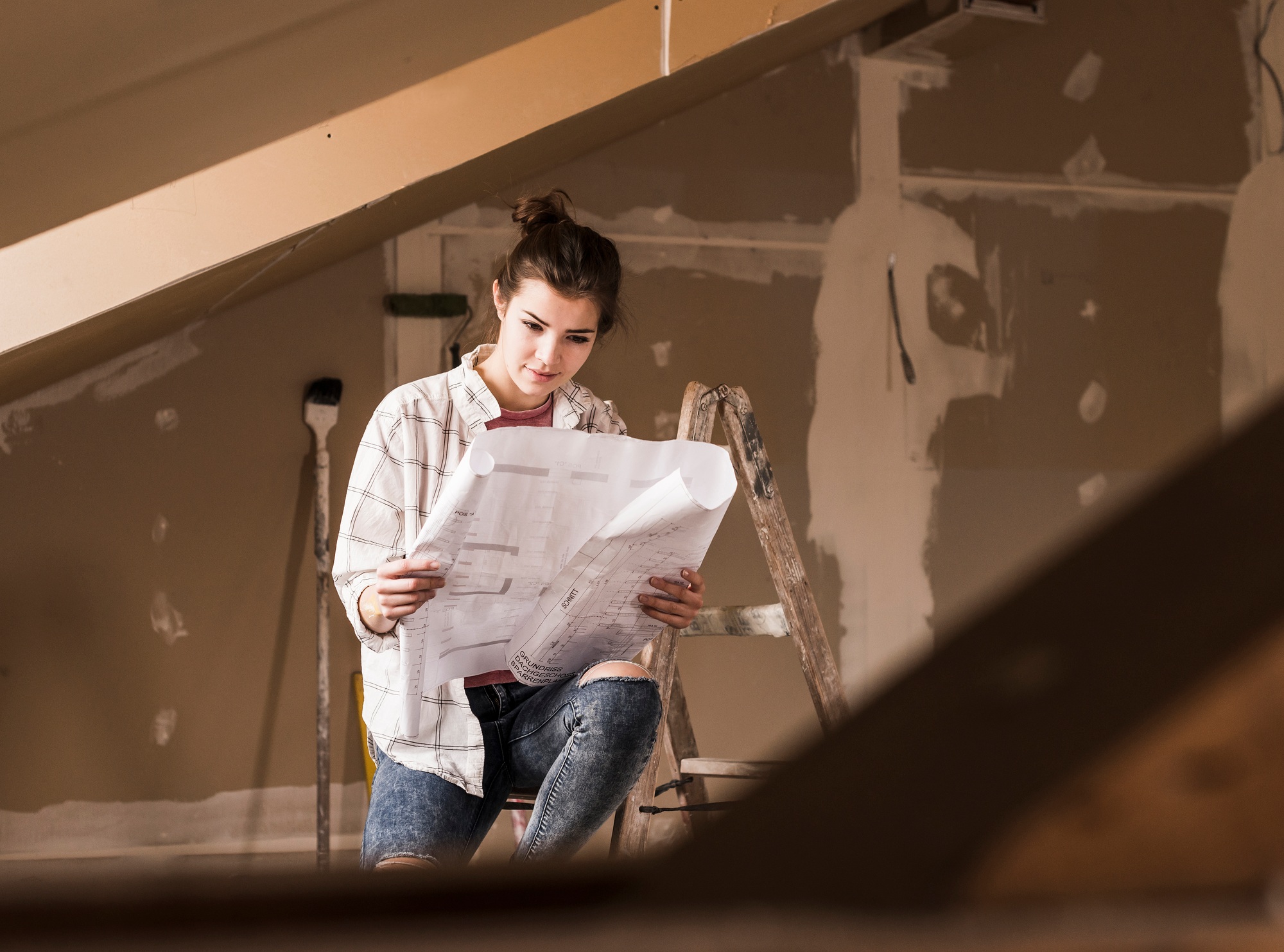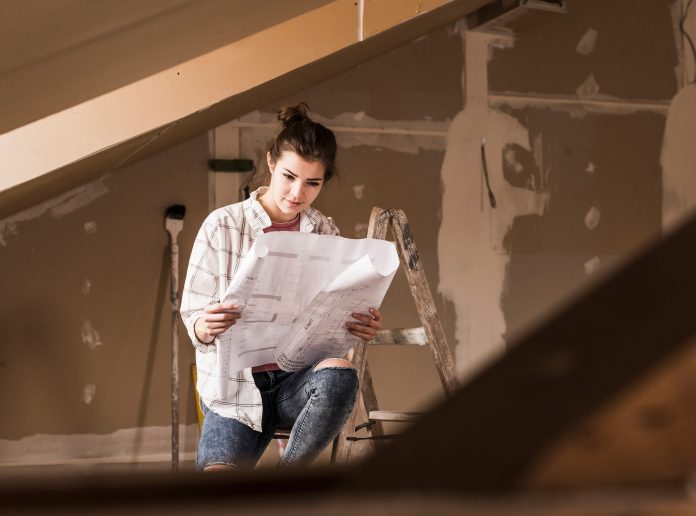Flipping houses is an exhilarating journey in real estate, much like transforming a rough diamond into a brilliant gem. It involves buying a property, renovating it, and selling it for profit. To thrive in this competitive arena, you must understand the local market’s intricacies and spot properties with potential. Careful budgeting and assembling a talented renovation team are critical steps on this path.
This guide reveals the key steps to successfully flip houses. From securing financing to choosing the right renovation experts, we’ll arm you with the insights needed to turn your dreams into reality. Are you ready to look at the thrilling world of house flipping?

Key Takeaways
- Explore market research to reveal profitable neighborhoods and precise property values.
- Create a detailed budget that includes purchase prices, renovation expenses, and financing options.
- Assemble a reliable team of experts, such as realtors, contractors, and financial advisors.
- Formulate a strategic plan and timeline for renovations and sales to optimize profits.
Understanding House Flipping
House flipping is an exhilarating strategy game, akin to chess, where each decision can lead to triumph. You buy a fixer-upper, revamp it, and sell it for profit. But how do you excel at flipping houses?
Start by immersing yourself in the local real estate market. Grasping property values and trends is critical. Are you finding your way a buyer’s market or a seller’s market? This knowledge allows you to uncover undervalued properties that can yield significant resale value.
Next, develop a realistic budget. Include the purchase price, renovation costs, and holding costs like property taxes and utilities. Unexpected expenses are the wildcards in this game, so always allocate a contingency fund. If cash flow is tight, explore financing options such as hard money lenders or private investors.
With your finances in order, assemble a reliable team. This should consist of a knowledgeable real estate agent who understands the market, skilled contractors for renovations, and possibly a real estate attorney to steer legal intricacies. Equipped with the right insights and support, you can amplify profits and lessen risks on your house flipping journey.
Getting Started with Flipping Houses
Ready to look at the exciting world of flipping houses? Imagine this: turning a worn-out shoe into a dazzling gem—worth much more than you spent! Start by understanding the real estate market and finding the right property. Research local neighborhoods with high housing demand and lower prices; think of this as your treasure map!
Next, set a clear budget. Include every expense: the purchase price, renovation costs, and closing costs. It’s like planning a party—you need to know how much to spend on snacks, decorations, and fun! Don’t forget about holding costs during renovations.
Once you spot a property, team up with a real estate agent or broker to steer the flipping process. They provide necessary insights and access to multiple listing services. After renovations, aim to sell the property for a higher resale value. Your mission?
Optimize your gross profit while skillfully managing risks!
| Key Steps | Description |
|---|---|
| Research | Understand local market trends. |
| Budgeting | Estimate all costs involved. |
| Find Property | Look for undervalued homes. |
| Renovate | Make necessary repairs and improvements. |
| Sell | List the property for a profit. |
Researching the Market
Researching the market is like being a detective within the sphere of real estate. Your goal?
To uncover hidden treasures—those undervalued properties ready for lucrative flips. Start by exploring local real estate market trends. Which neighborhoods are thriving with housing demand? Where are property values climbing?
This knowledge is critical for choosing the right property to flip.
Use tools such as multiple listing services to identify potential deals. Analyze purchase prices against estimated repair costs to gauge profitability. Don’t forget to include holding costs and selling costs—these can dramatically affect your bottom line. By mastering the market place, you equip yourself to make savvy decisions that increase your success in the flipping process.
Setting a Budget and Securing Financing
Setting a budget is like creating a treasure map for your house-flipping adventure. Start by calculating the purchase price, renovation costs, and closing costs. Have you included holding costs? These are the expenses you’ll incur while waiting to sell, such as property taxes and mortgage payments.
Next, it’s time to secure financing. Your options include traditional mortgages, hard money loans, and private lenders. Each choice has its own perks and pitfalls, much like choosing between a fast sports car and a reliable family sedan. Which option will speed you toward your goal without emptying your wallet?
At last, always set aside a portion of your budget for unexpected repairs. Just as a ship needs a sturdy anchor, your budget requires a safety net! This foresight helps you steer the unpredictable waters of the real estate market with confidence.
Building Your Team
Building a strong team is like assembling your own superhero squad for house flipping. Who do you need on your side?
Start with a real estate agent, your compass in the local real estate market. They guide you to undervalued properties and help you steer tricky transactions.
Next, enlist reliable contractors. These skilled artisans will transform a fixer-upper into a stunning home. Just as a chef relies on quality ingredients, you need expert workers to make sure renovations meet local building codes and stay on budget.
Don’t overlook financing experts. They are critical for securing the right loan, whether it’s a hard money loan or a traditional mortgage. Understanding your estimated repair costs and holding costs is critical for maximizing profits.
At last, connect with other house flippers. Networking provides invaluable insights and support. Even superheroes thrive with a strong team!
Each team member plays a critical role in the flipping process. Together, you can transform properties and achieve your financial dreams.
Hiring a Real Estate Agent
Hiring a real estate agent is like having a seasoned guide on your flipping journey. They possess deep insights into the local real estate market, identifying undervalued properties that are primed for profitable flips. With their sharp negotiation skills, they secure the best purchase price and expertly steer the complicated world of real estate transactions.
Why look at the flipping process without expert support?
An experienced agent serves as your safety net, helping you avoid costly mistakes while ensuring you understand property taxes, closing costs, and estimated repair costs for your house flipping project. They also connect you with reliable contractors and lenders, enhancing your investment strategy.
In the flipping arena, knowledge is your strongest weapon. By hiring a skilled agent, you’re not just acquiring a property; you’re investing in your future success.
Assembling a Renovation Team
Assembling a strong renovation team is like building a championship sports team; each member plays a critical role. Who should be on your roster?
Start with a savvy real estate agent to steer the local real estate market with expertise. Next, recruit skilled contractors—can you picture flipping houses without their craftsmanship?
Don’t underestimate the value of a competent property manager to streamline operations and a sharp financial advisor to craft effective financing strategies. Each expert contributes to your project’s success, much like a well-coordinated team. With the right lineup, you can turn a potential financial disaster into a profitable flip!
The Flipping Process

Flipping houses is a high-stakes chess match—every move counts. Start by researching the local real estate market. Understanding market trends helps you identify undervalued properties that are primed for profit. But how do you find these hidden gems?
Drive through neighborhoods, scouting for fixer-uppers that can be transformed into beautiful homes.
Next, set a clear budget. Flipping involves different expenses, such as renovation costs, closing costs, and property taxes. A financial cushion shields you from unexpected expenses. Consider financing options like hard money loans or partnering with private lenders to improve your cash flow.
With your finances in order, it’s time to assemble your team. Include a savvy real estate agent to steer transactions and reliable contractors for renovations. Your goal?
Increase the property’s value and sell it for a profit. Equipped with a solid strategy and the right support, you can master the flipping process and transform your investments into rewarding opportunities.
Finding and Acquiring a Property
Finding and acquiring a property is akin to a treasure hunt—knowing where to dig is necessary! Begin by exploring the local real estate market to find undervalued properties. Partnering with a savvy real estate agent can simplify your search and clarify property values. Remember, the ideal gem might just be a fixer-upper waiting for your creative touch!
- Market Research: Identify neighborhoods with high housing demand.
- Financing Options: Investigate hard money loans or traditional mortgages.
- Budgeting: Account for closing costs, renovation expenses, and holding costs.
As you search for properties, maintain a keen awareness of potential repair costs and the after repair value (ARV). This knowledge is critical for maximizing profits when flipping houses! Are you ready to uncover your next investment treasure?
Renovating and Improving the Property
Renovating and improving a property is like breathing new life into a worn-out book—it’s about enhancing its allure. When you flip a house, begin with necessary repairs. Address plumbing and structural issues initial to make sure safety and functionality.
- Budget Wisely: Always account for renovation costs and unexpected expenses.
- Choose the Right Team: Hire reliable contractors familiar with local building codes.
- Prioritize High-Value Upgrades: Focus on kitchens and bathrooms, as they usually yield the highest resale value.
Think of your renovation as assembling a puzzle; each piece enhances the in general picture. By understanding the real estate market and targeting improvements that attract buyers, you can lift your gross profit while minimizing financial risks.
Selling the Flipped House
Selling a flipped house is like showing a masterpiece; it’s your chance to highlight its beauty and optimize profits. Start by immersing yourself in the local real estate market. What are similar homes selling for?
This knowledge is necessary for determining the perfect listing price.
- Market research: Grasp the demand for housing and current property values in your area.
- Hire a real estate agent: Think of them as your navigator in the real estate transactions, connecting you with the right buyers.
- Calculate selling costs: Include closing costs and commissions to dodge any financial surprises.
A well-staged home draws buyers like a magnet. With the right strategy, you can turn your investment into a profitable triumph!
Managing Risks and Challenges

Flipping houses is like riding a thrilling rollercoaster—full of exhilarating highs and nerve-wracking drops. How can you stay on track without losing your lunch?
Start with a thorough risk assessment. Do you have enough funds for renovation and holding costs? Are you prepared for unexpected expenses that may arise during the house flipping process?
Understanding the local real estate market is critical. Just as a sailor reads the winds to steer, house flippers must analyze market trends and property values. This knowledge helps you identify undervalued properties that can yield a substantial gross profit. Collaborating with an experienced real estate agent or broker can guide you through real estate transactions and help you avoid costly mistakes.
A solid budgeting plan acts as your lifeboat in this sea of uncertainty. Include all potential closing costs and selling costs in your calculations. Just as a ship needs a sturdy hull to weather storms, your financial strategy must be strong enough to handle the challenges of flipping houses.
Understanding the 70% Rule
The 70% Rule is critical for successful house flipping. It states that you should invest no more than 70% of a property’s after repair value (ARV), minus any estimated repair costs. For example, if you buy a fixer-upper for $100,000 and anticipate $20,000 in repairs, your maximum purchase price should be $50,000. This strategy minimizes financial risk while maximizing profit margins.
Why is this rule so significant?
Imagine it as your financial safety net. Just as a net catches acrobats falling from great heights, the 70% Rule protects you from overpaying. If the market shifts or unexpected costs arise, you’ll be equipped to handle these hurdles without putting your investment at risk.
Understanding and applying the 70% Rule allows you to steer the flipping process confidently. This guideline serves as your roadmap to successful real estate transactions and profitable outcomes.
Managing Finances and Cash Flow
Managing your finances and cash flow is like steering a ship through stormy seas. Understanding the currents is critical to avoid capsizing. When flipping houses, a detailed budget is your lifeline. This budget must cover the purchase price, renovation costs, and holding costs. Are you prepared for the unexpected expenses that can surface during your house flipping project?
Apply the 70% rule to protect your investment: spend no more than 70% of the property’s after repair value minus estimated repair costs. This strategy maximizes profits while minimizing risks.
- Identify undervalued properties: Look for homes needing minor renovations in sought-after neighborhoods.
- Work with reliable contractors: Build a trustworthy renovation team to keep your project on track and within budget.
- Plan for selling costs: Include closing costs and real estate agent fees when calculating your gross profit.
Monitoring your cash flow is necessary to sidestep financial traps. By understanding the local real estate market, you can make well-informed choices that lead to successful real estate transactions.
Overcoming Common Challenges

Flipping houses is like riding a thrilling roller coaster—full of thrill but fraught with potential pitfalls. What challenges should you anticipate?
Initial, let’s look at budgeting. Without a solid budget, expenses can spiral out of control, much like an overinflated balloon ready to burst. Have you factored in renovation costs and holding costs? These hidden expenses can remarkably chip away at your profits if ignored.
Next, finding the right property is critical. It’s like searching for a needle in a haystack. You need to identify undervalued properties in a fiercely competitive real estate market. How can you do this?
Use market analysis and cultivate relationships with savvy real estate agents who know the local terrain.
Don’t overlook legal considerations. Obtaining the correct real estate license and understanding local building codes are necessary. Ignoring these factors can lead to costly mistakes. At last, monitor your cash flow closely. Like a river, it must flow smoothly for your flipping venture to succeed!
Do You Need a Real Estate License to Flip Houses?
No, you don’t need a real estate license to flip houses. Think of flipping houses like riding a bike: you can pedal without formal lessons, but a license is like a helmet—offering protection and insight. With a real estate license, you open up valuable resources like multiple listing services (MLS), which help you find undervalued properties in your area.
Many successful house flippers thrive without a license by leveraging their knowledge of the real estate market and building a network of trusted contractors and agents. This expertise is critical, as flipping houses demands a sharp understanding of property values, repair costs, and the entire flipping process.
While a license can simplify real estate transactions, it’s not mandatory. Consider it like a map on a journey; it can guide you, but you can still reach your destination without it. If you’re ready to look at flipping, focus on boosting your market knowledge and assembling a reliable team!
Summing up
Flipping houses is an exciting blend of profit and creativity. While a real estate license isn’t necessary, it can offer valuable insights. Begin by setting a clear budget, pinpointing the perfect property, and managing renovations with precision. With the right strategies and knowledge, you can turn a dilapidated house into a breathtaking dream home. Imagine sculpting a masterpiece from rough stone—every expert started as a beginner. So, what’s stopping you?
Look at the world of house flipping today!
Frequently Asked Questions
How do I start my initial house flip?
Start by setting a budget, finding a suitable property, making an offer, and planning renovations. Good luck!
What is the house flipper 70% rule?
The 70% rule states you should pay no more than 70% of a property’s after-repair value (ARV) minus renovation costs to make sure profit.
How much money do I need to start flipping houses?
You can start flipping houses with as little as $10,000, but having $30,000 to $50,000 is ideal for better opportunities.
What are the common mistakes to avoid when flipping houses?
en: Avoid underestimating costs, neglecting inspections, rushing renovations, and skipping market research. Plan wisely!



